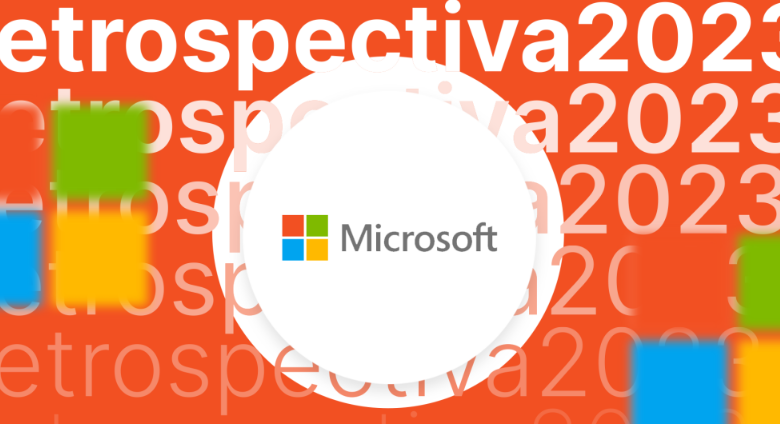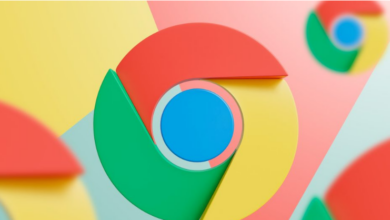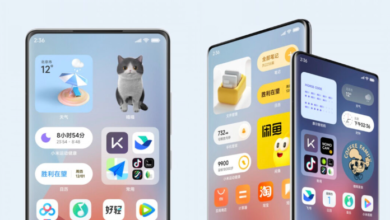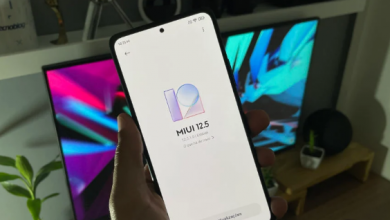
Microsoft in 2023: there was the purchase of Blizzard and the arrival of Bing with AI
2023 was a positive year for Microsoft. The big tech finally completed the purchase of Activision Blizzard, which turned it into the third largest gaming company in the world. It also left Google behind by launching its own artificial intelligence tool (integrated with Bing).
How about taking advantage of this week to remember the main events at Microsoft? Check out the highlights of the last 12 months below.
Activision Blizzard Purchase Conclusion
The completion of the Activision Blizzard acquisition was the most important fact of 2023. To close the entire purchase process, announced back in January 2022, Microsoft even had to accept that it lost the console war (her words, not mine). Big tech showed that active Xbox users make up 21% of the market, compared to 34% for Sony and 50% for Nintendo.
Microsoft justified that the acquisition of Activision Blizzard is part of its strategy to gain more share in the gaming universe by selling the games.
The soap opera of the purchase was not easy at all. The U.S. agency similar to our CADE almost blocked the acquisition. The FTC asked for more time to review the case, but the U.S. court denied the request, saying Microsoft had already turned over enough material.
Then, the other thorn in the side was the CMA, the UK’s CADE. First, the entity rejected the purchase, stating that the deal would harm competition in the cloud gaming service. Microsoft filed an appeal, and the favorable decision came out on October 13. Hours later, the big tech published a statement about the end of the acquisition process. With this, it becomes the third largest gaming company in the world, behind Tencent and Sony.
In 2024, Activision Blizzard games will join Game Pass, Microsoft’s subscription gaming service. In negotiations to finalize the deal, the company agreed to bring Call of Duty to Nintendo Switch and to keep the saga on PlayStation 5 for at least 10 years. There were, of course, other deals, such as releasing the games on GeForce Now, Nvidia’s cloud gaming service.
Microsoft takes the lead in AI and gains ground with Bing
Probably one of the most talked about topics this year (and the last months of 2022), artificial intelligence was also on the rise at Microsoft. And analyzing it better, she is one of those responsible for popularizing the theme.
Microsoft owns 49% of OpenAI, the company that created ChatGPT and Dall-E. Months after ChatGPT was launched, the big tech company introduced Bing Chat (now called Microsoft Copilot), a generative AI integrated into the Bing search engine.
According to Microsoft’s own data, Bing reached 100 million daily active users — a mark reached a month after the launch of Microsoft Copilot. Of that total, one-third were new users. The big tech company said Edge also helped break the record.
Even with the big numbers, Microsoft is still far from the 3.5 billion searches made per day on Google. In fact, with the slowdown in the hype about AIs, Bing has seen its traffic decline. At least Microsoft Copilot was back on the rise during the Pixar image trend.
With the evolution of artificial intelligence, those who thought that Cortana would gain a leap in performance were mistaken. Microsoft has opted to discontinue the virtual assistant and launch Windows Copilot – a kind of Bing with AI integrated into the operating system. It’s even capable of tinkering with some PC settings. That is, Cortana walked so that Copilot could run.
Despite the achievements, Microsoft also saw the departure of Panos Panay, head of the divisions responsible for Surface and Windows. He was in big tech for 19 years and led the team that launched Microsoft’s tablets and laptops. Panay was at the helm of Windows 11 and also made decisions about the direction of Windows 12, which promises to be the smartest OS on the market.
The former director is now at Amazon. It will be a lot of fun to see what the company plans to launch in the segment of devices (Kindle, Echo) and services (Alexa). Amazon and Microsoft, fight!
Microsoft didn’t just open up to recognize Sony and Nintendo’s victory in the console market. Satya Nadella, the aforementioned CEO, made two statements acknowledging some “problems” of big tech. Let’s go in chronological order of the facts.
In early October, during the U.S. government’s lawsuit against Google, Nadella acknowledged that Bing is worse than its rival. However, the statement was not self-deprecating, but rather a way (even didactic) to explain the difference between the two search engines and Google’s dominance.
Because it is less widely used, Bing does not have user data that allows you to improve search results. Someone joins Bing for the first time, thinks it’s bad, gives up, and goes back to Google. That’s it, we have a cycle that’s hard to break.
Another Nadella moment involved Windows Phone. He is the third Microsoft company to show some regret with the way the operating system for phones has been managed. For Nadella, the company was wrong to give up without looking for other alternatives for tablets and cell phones.
Windows Phone was launched in 2010 and discontinued in 2017. Despite the “failure,” you can find mentions of it on tech fan forums and other corners of the internet. To the hope of this audience, every now and then some (weak) rumor comes up of Microsoft working on something that could bring it back.




